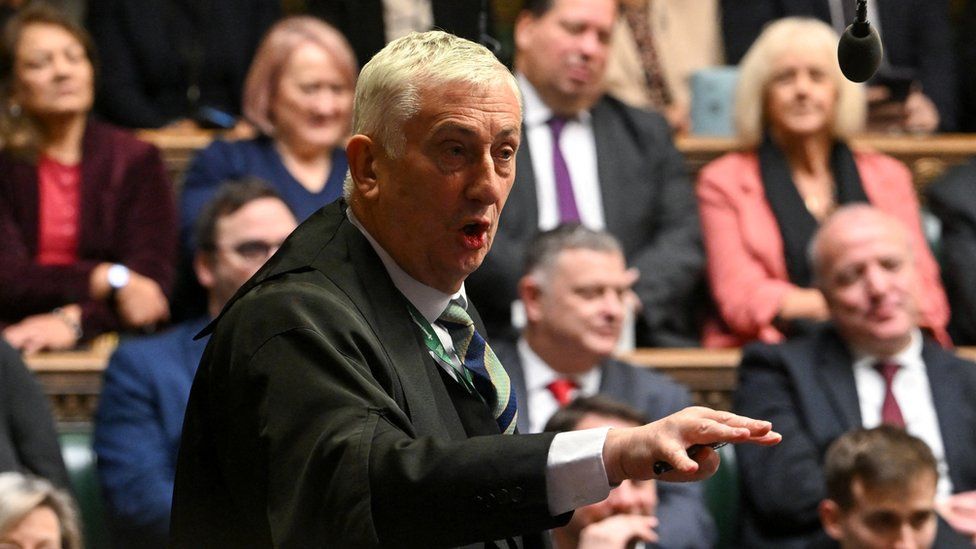ARTICLE AD BOX
 Image source, UK PARLIAMENT
Image source, UK PARLIAMENT
Sir Lindsay Hoyle, shown here at a different debate, has been Commons Speaker since 2019
By Paul Seddon
Politics reporter, BBC News
Sir Lindsay Hoyle is facing mounting pressure to quit as Commons Speaker over his handling of a vote on Gaza.
SNP Westminster leader Stephen Flynn said his decision to pick a Labour motion had seen Parliament "descend into farce".
He added his party no longer had confidence in him, and called for a Commons vote on his future.
Sir Lindsay apologised for his decision, but said he had done it to ensure MPs' safety.
Thirty-five Conservative MPs have also effectively called for him to go by joining 23 SNP MPs in signing a motion of no confidence.
There is no formal way for MPs to oust the Speaker, but the withdrawal of support from the SNP, the third largest party at Westminster, makes his position significantly more precarious.
It comes after Sir Lindsay departed from convention to allow MPs a vote on a Labour amendment calling for a ceasefire in the Israel-Hamas war during a debate allocated to the SNP on Wednesday.
The move meant Labour MPs could call for a ceasefire without backing a differently-worded SNP motion, limiting a potential Labour rebellion but provoking fury among the SNP's MPs.
Sir Lindsay said he had allowed the vote to give MPs the chance to vote on a wider range of positions, and to protect them from threats to their safety over the vote.
It has plunged his tenure as Speaker into crisis, with accusations he played "party politics" with the vote.
Several Conservative MPs have also questioned his decision to allow Labour's motion on safety grounds, arguing he had allowed Parliament to be intimidated by threats of violence.
He is expected to meet senior party figures later, as he battles to shore up support for his position.
Speaking on Thursday, Sir Lindsay apologised to the SNP for making a "mistake" - and offered the party another chance at a Gaza vote through a future emergency debate.
But he said: "I have a duty of care, and I say that, and if my mistake is looking after [MPs] I am guilty."
He added that details of threats to MPs shared with him were "absolutely frightening".
Labour leader Sir Keir Starmer has rejected suggestions he had threatened to withdraw support from Sir Hoyle after the next election if he didn't allow a vote on Labour's motion.
Speaking to reporters, he said he did not "threaten the Speaker in any way," but did not directly answer a question on whether any of his MPs might have done so.

 1 year ago
103
1 year ago
103








 English (US) ·
English (US) ·